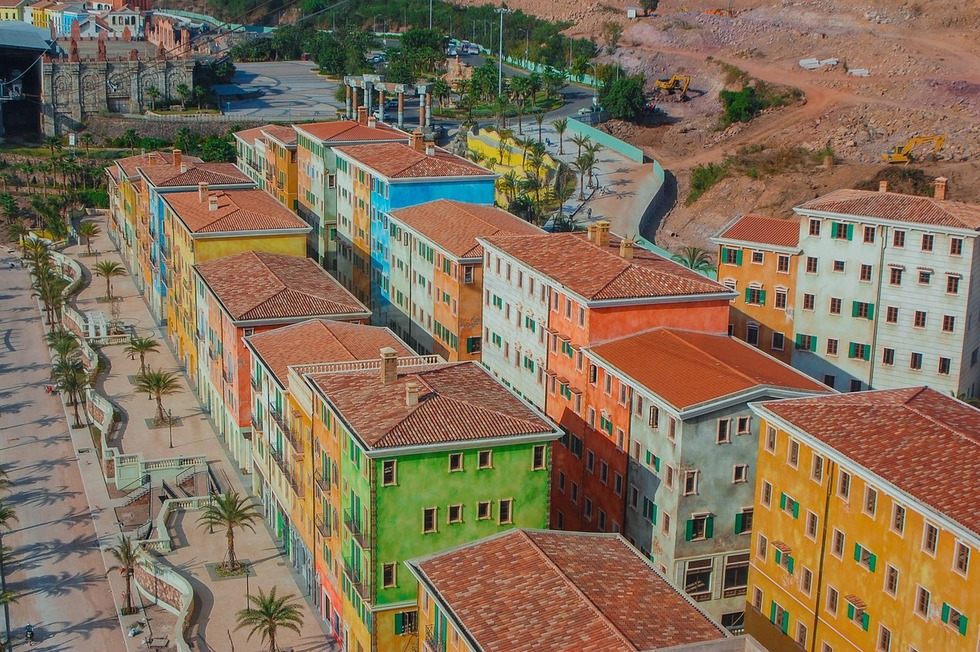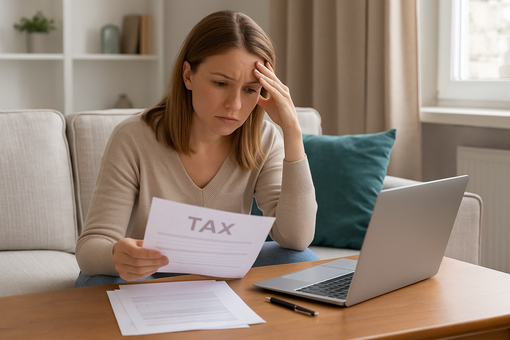Can foreigners buy property in Vietnam? A comprehensive guide

Vietnam’s housing scene is changing fast, with new projects rising in the big cities and demand keeping pace. More people are looking to settle or invest here, making the market more visible on the global stage.
For a foreigner, the attraction is clear: a lively economy, expanding city centers, and property choices that feel within reach. Ownership rules now give structure, helping buyers know what they can and cannot do. Buying property in Vietnam has become a path many are exploring, whether for living, retirement, or rental income.
This article is brought to you by Taxes for Expats – we help Americans abroad handle changing tax rules with confidence. We take the stress out of filing while guiding you through the details of living and earning overseas. If Vietnam is part of your future, our team can make sure your tax strategy works smoothly alongside your real estate plans.
Can foreigners lawfully buy Vietnamese properties?
Before you start searching for properties to purchase in Vietnam, it’s worth understanding the rules that shape the property market. Knowing what foreigners can and can’t buy legally will help you avoid costly surprises later.
-
Legal rules and framework
Vietnam vests land in the entire people, with the State managing land use under the Land Law 2024. A foreigner may own houses in qualified commercial housing projects but not land use rights themselves. -
The 2015 Housing statute and later changes
Decree 99 of 2015 implements foreign homebuying with a 50-year term extendable once, and sets quantitative limits in each area. Draft guidance to the 2023 Housing Law keeps a 30 percent cap per apartment building and applies it to each block sharing a common base. -
The Pink Book title
Commonly called the Pink Book, it is the Certificate of Land Use Rights, Ownership of Houses and Other Land Attached Assets, and serves as your title. It records the unit and associated common land use rights where applicable. -
For American purchasers
Americans interested in buying a home in Vietnam often wonder how those holdings fit into IRS reporting. The real estate itself is not reported on Form 8938 or FBAR; foreign accounts over $10,000 and entity holdings can trigger Form 5471 or 8865.
Together, these points show that while ownership is restricted, foreigners can legally hold apartments or houses within commercial housing projects under set quotas and terms. By navigating the Pink Book process, complying with quotas, and observing reporting rules, foreigners can secure Vietnamese property in a structured and lawful way.

Which properties can foreigners lawfully own
Having understood the legal foundation, the next question that commonly arises is: the kind of properties that are actually available to foreign buyers – and where? When buying any type of property in Vietnam as a foreigner, one key is to watch out for the paths you choose, as they set your limits.
Foreigners can legally buy apartments and, in certain projects, landed homes such as villas or townhouses – but only inside approved commercial housing developments. These are typically urban or suburban areas that are not part of Vietnam’s restricted defense or security zones.
When purchasing an apartment, foreign ownership is capped at 30% of units in each building, and if several buildings share a common podium, the 30% cap applies to each block individually. For landed homes, the ceiling is 250 houses within an area equivalent to one ward. These quotas prevent over-concentration of foreign ownership and keep projects balanced between local and overseas buyers.
If you’re considering new developments, focus on commercial housing projects that have full government approval. Before signing any contract, confirm in writing that:
- The project is eligible for foreign buyers,
- There’s still quota space under the 30% or 250-home limits, and
- The developer plans to issue Pink Books for individual units.
NOTE! Foreigners cannot buy agricultural land or properties within areas reserved for national defense or security. These exclusions are checked by local authorities during the project approval and title registration process.
By confirming these details up front, foreign buyers can invest confidently, knowing that their property is legal, their quota position is secure, and the project qualifies for title registration.
Ownership rules for foreign housing in Vietnam
Once you know which homes are open to foreign buyers, what you need to check now is how ownership actually works. A common misconception is that foreigners can own land in Vietnam – in reality, all land is state-managed. What you can own is the home itself within an approved commercial housing project.
Here’s how the system defines ownership terms, renewal periods, quota limits, and what happens when you sell or pass the property on.
- Individuals can hold a home for 50 years from the Pink Book issue date; this is the standard term for foreign buyers. American purchasers follow the same rule.
- A single extension is possible: apply to the provincial People’s Committee at least three months before expiry; if you still meet the conditions, approval can be granted for up to another 50 years.
- Condo quotas apply: foreigners may buy up to 30 percent of apartments in each building; if blocks share a common base, the 30 percent cap applies to each block.
- For villas and terraced houses, the combined foreign cap is 250 homes within an area equivalent to one ward, across eligible projects. These caps shape access to property in Vietnam.
- Marriage to a Vietnamese citizen permits an indefinite home term on eligible dwellings; heirs can receive the home or its value via will or by law, subject to quota and security-area rules.
- Resales require a notarized transfer contract with the title updated at the land registration office; any sale to another foreign buyer must still respect the quota.
NOTE! For foreign organizations, ownership duration tracks the investment registration certificate and ends when that certificate expires unless renewed. This rule overrides the 50-year individual ceiling.
Step-by-step guide to buying property in Vietnam
Now that we are clear on ownership rights, you can move confidently through the buying process. Here’s what each stage looks like – from first checks to your Pink Book title.
Step 1: Start with eligibility and quota checks because foreigners may own up to 30 percent of units in a condo building and no more than 250 landed houses within an area equivalent to a ward. Confirm the home is inside a commercial housing project and not in a defense or security zone, and ask the developer or local authority to confirm quota availability in writing. Expect an initial 50-year term for individual buyers with a single possible extension if conditions are met.
Step 2: If you plan to buy property in Vietnam, request a dossier that shows investment approval, land allocation or lease, construction permit, and fire safety acceptance. Review draft contract terms and obtain a clear payment schedule before placing any reservation deposit. Cross-check the project’s promised legal timeline against current local practice so your handover and title filing plan is realistic.
Step 3: For secondary transfers of property in Vietnam, the sale and purchase contract must be notarized or certified under the Land Law. Transactions with a licensed real estate business may be exempt from notarization by statute, although many buyers still notarize for certainty. For developer sales, sign a bilingual SPA, track milestones precisely, and use a notarized power of attorney if you will sign from abroad through a Vietnamese consulate.
Step 4: At transfer, settle the 0.5 percent registration fee for houses and land and the required administrative filings. If the seller is an individual, the personal income tax on a real estate transfer is 2 percent of the contract price. US expats should be aware that this purchase cost structure interacts with their US tax reporting: the condo maintenance fund of 2 percent is not deductible locally, but it forms part of the cost basis for future capital gains, and both the registration fee and Vietnamese taxes can be claimed for foreign tax credit purposes when filing with the IRS.
Step 5: File your title dossier at the land registration office to receive the Certificate of Land Use Rights, Ownership of Houses and Other Land Attached Assets, commonly called the Pink Book. Most localities require filing within about 30 days of the notarized contract date, so plan for signatures, courier, and pick up. The Pink Book records your ownership term and is the reference for any later extension or resale.
Step 6: A local real estate lawyer checks encumbrances, confirms quota status, and aligns the SPA with current law to avoid obstacles at registration. If you cannot attend key milestones, the lawyer can set up a notarized power of attorney locally or guide you to sign at a Vietnamese consulate abroad. A licensed agent coordinates viewings and paperwork flow while the lawyer remains responsible for compliance and risk control.
Vietnam property prices in urban centers
With your buying process mapped out, the next step is to get a realistic sense of pricing. Home values in Vietnam vary widely between major cities, so it helps to see what buyers typically pay in each area.
The figures, drawn from Numbeo, give an overview of average purchase prices per square meter in central and outlying districts – a useful benchmark for anyone considering buying property in Vietnam. Always confirm current prices with a licensed local real estate agent before making decisions.
| City | City centre price per m () | Outside centre price per m () |
|---|---|---|
| Ho Chi Minh City | 102,436,000 | 50,190,000 |
| Hanoi | 90,078,000 | 50,000,000 |
| Da Nang | 48,000,000 | 27,208,000 |
| Hai Phong | 32,500,000 | 20,000,000 |
| Vung Tau | 35,581,000 | 29,600,000 |
NOTE! These five cities were highlighted because they are among Vietnam’s most dynamic hubs for work, study, and tourism, where demand for housing is strongest. They give a clear picture of the pricing range that buyers typically encounter in both city centre and suburban markets. Beyond these, foreigners also explore opportunities in Nha Trang, Can Tho, and Binh Duong, where development is expanding rapidly.
Taxes and fees that every foreign buyer faces
When buying any property in Vietnam, before signing any contract, make sure your budget includes Vietnam’s standard taxes and fees – they can add several percent to your total cost.
The tax obligations that shape your purchase
You will encounter taxes at purchase and later if you rent out the home. Rates below reflect current national rules and the latest 2025 guidance where relevant.
- Transfer tax burden on sellers: For individual sellers, personal income tax on real estate transfers equals 2% of the transfer price. Contracts can assign the buyer to declare and pay on the seller’s behalf at closing.
- VAT on new homes from developers: Standard 10% VAT on commercial housing; 5% for social housing. Vietnam’s 2025 to 2026 VAT cut to 8% expressly excludes real estate, so these housing rates remain.
- Rental taxes if you lease the unit: When annual rent exceeds 100 million VND, individuals owe 5% VAT + 5% PIT on gross rental receipts; below that threshold, these taxes are not due.
- For transfers, PIT is declared at the time of notarization or registration; for rentals, filings follow Circular 40/2021 procedures.

The essential fees every buyer must plan for
Alongside taxes, you will face several administrative and regulatory charges that must be paid to complete a transaction. These fees are fixed by law and apply regardless of whether you buy from a developer or on the resale market.
| Item | Who typically pays | Rate or method |
|---|---|---|
| Registration fee | Buyer | 0.5% of the price used for calculation |
| Notarization of the sale contract | Usually shared or per contract | Sliding scale by contract value, cap 70,000,000 VND per case |
| Apartment maintenance fund (condos) | Buyer at handover | 2% of the apartment price, kept in a dedicated account |
Vietnam real estate pros and cons
With all costs considered, how do the rewards compare to the risks? Let’s look at the real pros and cons for Americans who are considering buying properties in Vietnam.
Benefits of a real estate purchase in Vietnam
Buying here can be surprisingly affordable and offers steady, if not sky-high, returns. Let’s break down why many expats and investors are giving it a closer look.
- Affordable entry point: In 2025, new apartments in big cities will cost about 80 million dong per square meter, or roughly 3,028 dollars. That means a 50-square-meter starter condo could be around $150,000 – far cheaper than a similar unit in Bangkok or Manila.
- Decent rental yields: Average gross rental yields nationwide are about 3.85 percent. In Ho Chi Minh City, it’s 3.52 percent, while Hanoi sits at 2.9 percent. Put simply, a $150,000 condo in Saigon could bring in around $5,250 a year in rent before costs.
- Friendlier policy outlook: Authorities are promising smoother approval processes, which could make it easier to buy, sell, or rent in the future.
Risks to weigh before you commit to that land
There are still roadblocks and costs that make the process more complex than in the US. Understanding them up front helps avoid surprises, so you will not fall in love with a property and find the foreign quota already used up.
- Modest yields: A $200,000 apartment in Ho Chi Minh City with a 3.5 percent return brings in about $7,000 a year before expenses. It’s positive, but not the high cash flow you might expect in some US rental markets.
- Slow paperwork: Even with reforms, getting your ownership certificate (the Pink Book) can take months, especially if the developer is behind on approvals.
- Extra costs: On top of the purchase price, you’ll pay a 0.5 percent registration fee and, if it’s a condo, a 2 percent maintenance fund. For a $100,000 apartment, that means $500 in registration and $2,000 upfront for building upkeep. Sellers also pay a 2 percent tax when they sell.
Once you’ve weighed the numbers and rules, make sure your US filings align with your Vietnam purchase – that’s where expert tax help comes in, to protect your returns.
Secure your investment with expert tax support
Owning a property in Vietnam is only half the story for Americans abroad – making sure the IRS recognizes your rental income and foreign taxes correctly is just as important. From reporting rental earnings to claiming credits for Vietnam’s local taxes, even small missteps can cut into your returns.
At Taxes for Expats, we make compliance simple, leaving you free to enjoy your property purchase in Vietnam while your finances stay in order.




